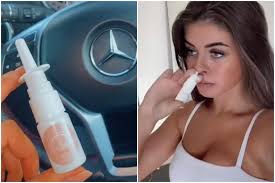
Common Myths About Tanning Nasal Spray Debunked
Sprays for tanners has recently gained a lot of attention as a unique method to achieve a sun-kissed glow without UV exposure. These sprays, designed to be inhaled through the nasal passages, are praised as being convenient and effective in enhancing the color of your skin. But understanding their safety, efficacy and application is vital prior to incorporating them into your beauty regimen.
What is Tanning Nasal Spray?
tanning nasal spray contain a synthetic hormone called melanotan II. This peptide is known for stimulating melanin production, the pigment that gives skin its color. Inhaling the spray, users hope to achieve a tan similar to what can be achieved by sun exposure or tanning beds but with fewer risks of UV-related damage.
How Does It Work?
Melanotan II mimics what happens to a hormone naturally present in the body that controls melanin’s production. Inhaling the peptide triggers the melanocytes in the skin in producing melanin leading to a darker skin tone. This process may take days or weeks before it becomes evident, based on the person’s skin type and frequency of usage.
Safety and Risks
While nasal sprays for tanning provide the option of using UV-free tanning methods, their safety remains a matter of concern. The FDA has not approved these sprays for use, as well as their effects over time are not fully understood. Risks could include allergies, skin problems, and hormonal imbalances. In addition, as they aren’t controlled, there is a risk of contamination or incorrect dosing.
Usage and Effectiveness
For those considering tanning nasal sprays, it’s essential to follow the manufacturer’s instructions carefully. The majority of people apply the spray in short bursts that allow the product to be absorbed into the nasal membranes. Effectiveness varies, with some users achieving a noticeable tan, whereas others see only minimal effects.
Conclusion
Tanning nasal sprays present an appealing alternative for those who want to avoid exposure to UV while getting an attractive tan. However, potential users should consider the benefits and risks due to the lack of FDA approval and the potential for side effects. Consult a medical professional prior to commencing any new treatment is a wise decision.



